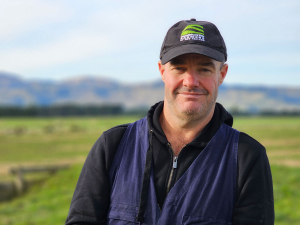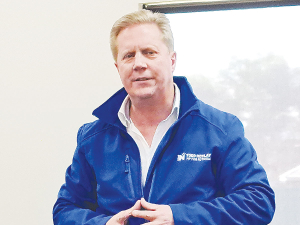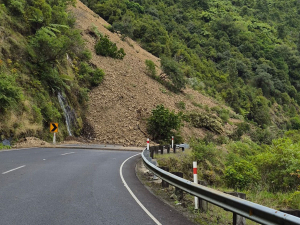Southland Federated Farmers president Jason Herrick says farmers are prepared for winter grazing every year.
However, he says they don’t always have the benefit of hindsight and can’t predict what weather will show up when.
“It’s all about controlling the controllables and having plans B right through to Z to deal with what the weather gods throw at us,” Herrick told Dairy News.
He says that the winter grazing regulations introduced by the previous government were “completely unnecessary” because most farmers were already following good practice.
“There were a lot of costly, unworkable rules put in there as well which, in turn, had farmers thinking of ways to get around them because of the cost and ultimately led to some worse situations,” he says.
Herrick’s comments follow the news that a Southland livestock grazing company was fined $48,750 for allowing hundreds of cattle to graze in mud.
FFPM Grazing Limited pleaded guilty to four charges under the Animal Welfare Act in October last year. Last month, the company was sentenced in the Invercargill District Court.
The company was also ordered to pay the Ministry for Primary Industries (MPI) $15,000 in costs.
MPI director of compliance and response Glen Burrell says the winter grazing practices at the property were appalling.
“Many of these animals, around 125, were stuck in mud to the extent that they were not able to display normal animal behaviour like walking and turning freely to access feed or rest in dry areas,” Burrell says.
He says the farm was running more than 2,000 head of stock on a relatively small area of land, something that contributed to the creation of mud and animal welfare issues.
Animal Welfare Inspectors had visited FFPM Grazing Limited’s leased property near Tuatapere following a complaint.
Burrell says their coats were caked in mud, didn’t have a dry lying area, and when they were lying down, they were lying in mud.
“MPI’s investigation found that former farm workers at the property had warned the company and directors who leased the property against using silage stacks. The property owner reiterated these concerns to one of the grazing company directors, but no action was taken,” he says.
“We continue to engage with farmers and industry about winter grazing and have seen some good progress. We proactively visited around 20 proactive properties throughout Southland during winter 2024 and found most farmers were on top of their winter grazing requirements with good plans in place,” Burrell says.
“Most farmers work hard to the right thing and have improved their winter grazing practices over recent years,” he says. “This case is an important reminder to plan ahead and get on top of problems before they develop.
“A well-planned winter grazing system supports good animal health and welfare. It ensures animals have sufficient and appropriate feed, access to plenty of clean water, and the ability to move freely to and from their feed and water,” Burrell concludes.
MPI strongly encourages any member of the public who is aware of animal ill-treatment or cruelty to report it to the MPI animal welfare complaints freephone 0800 00 83 33.










